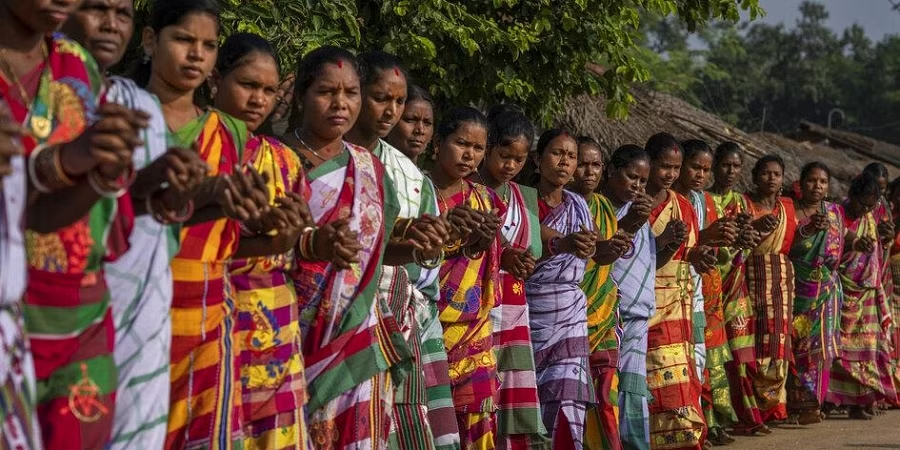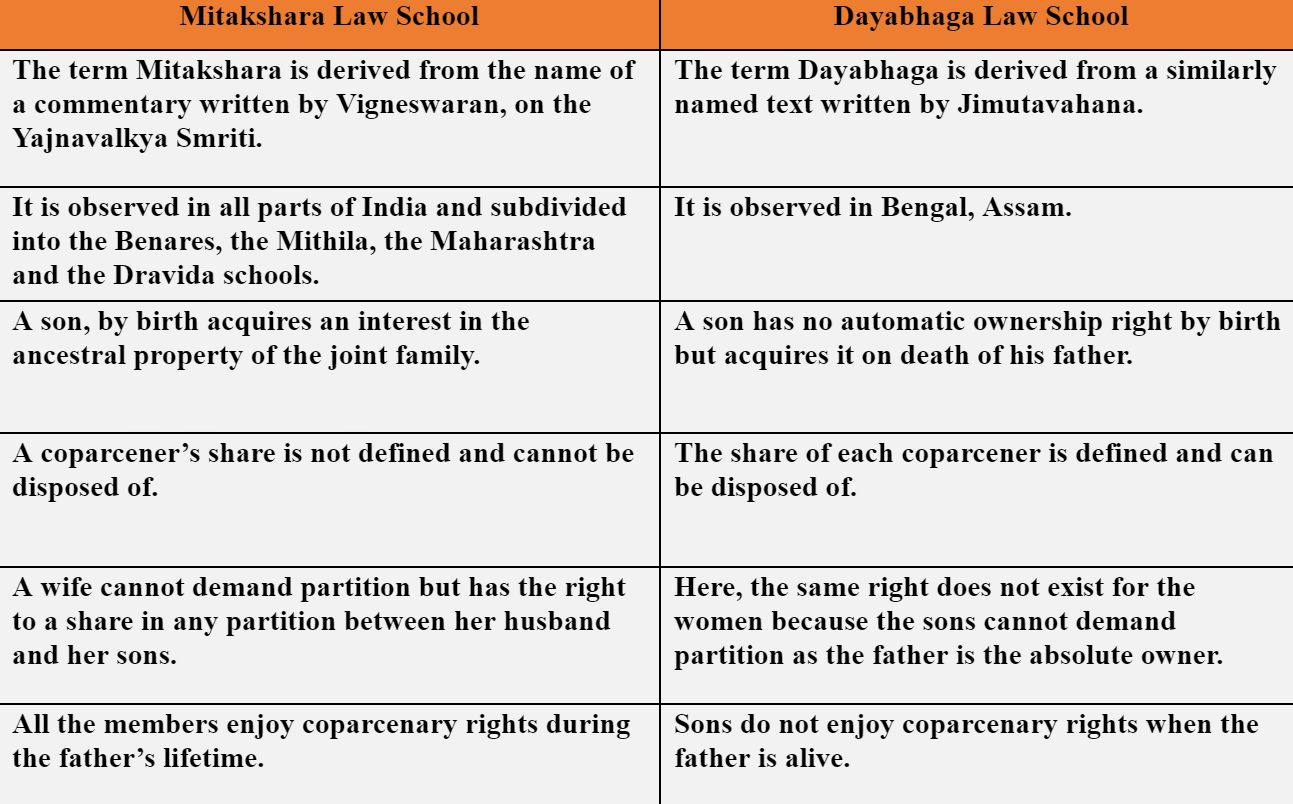- Courses
- GS Full Course 1 Year
- GS Full Course 2 Year
- GS Full Course 3 Year
- GS Full Course Till Selection
- Online Program
- GS Recorded Course
- NCERT (Recorded 500+ Hours)
- Polity Recorded Course
- Geography Recorded Course
- Economy Recorded Course
- AMAC Recorded Course
- Modern India, Post Independence & World History
- Environment Recoded Course
- Governance Recoded Course
- Science & Tech. Recoded Course
- International Relations and Internal Security Recorded Course
- Disaster Management Module Course
- Ethics Recoded Course
- Essay Recoded Course
- Current Affairs Recoded Course
- CSAT
- 5 LAYERED ARJUNA Mentorship
- Public Administration Optional
- ABOUT US
- OUR TOPPERS
- TEST SERIES
- FREE STUDY MATERIAL
- VIDEOS
- CONTACT US
DENIED PROPERTY RIGHTS TO SCHEDULED TRIBE WOMEN
DENIED PROPERTY RIGHTS TO SCHEDULED TRIBE WOMEN


Latest Context
The Union government is considering whether to publish a notice under the Hindu Succession Act to apply favourable provisions to Scheduled Tribe (ST) women who practise Hinduism, allowing them to inherit an equal part of the father's or Hindu Undivided Family (HUF) property.
What Problems Relating to Inheritance Rights Are Being Highlighted?
Exclusion from the Act:
- Hindu women from Scheduled Tribes are not eligible for the favourable beneficial of the 1956 Hindu Succession Act.
- Due to this restriction, they lack the same inheritance rights as women from other Hindu communities.
Denying the right to equal inheritance:
- ST women are not entitled to an equal portion of the assets owned by their father or the Hindu Undivided Family (HUF) as a result of the exclusion.
- Due to the unequal inheritance rights, ST women's ability to become financially independent is hampered.
Discrimination Based on Tribal Identity:
- It is based on their tribal identification that ST women who practise Hinduism are denied equal inheritance rights.
- It runs counter to the Indian Constitution's cherished values of equality and non-discrimination.
Supreme Court Order:
- In the case of Kamla Neti v. Special Land Acquisition Officer and Ors, the Supreme Court ordered the Central Government to determine whether changes to the Hindu Succession Act's exclusions for Scheduled Tribes' application to its provisions are required.
Facts about Hindu Succession Act, 1956
- The Hindu Succession Act of 1956 formalised the Mitakshara school of Hindu law, which oversaw succession and property inheritance but only regarded men as legitimate heirs.
Relevance:
- It applies to everyone who is not a Jew, Christian, Parsi, Muslim, etc.
- For the purposes of this law, Hindus also include Buddhists, Sikhs, Jains, and members of the Arya Samaj and Brahmo Samaj.
- Hindu families are traditionally made up of all the male descendants of a common ancestor, their mothers, spouses, and unmarried daughters. The family property is jointly owned by the legal heirs.
Hindu Succession (Amendment) Act, 2005:
- Women were acknowledged as coparceners for property partitions arising after September 2005 when the 1956 Act was amended.
- According to a change made to Section 6 of the Act, a daughter of a coparcener is now a coparcener "in her own right and in the same manner as the son" by virtue of birth.
- The same rights and liabilities "in the coparcenary property as she would have had if she had been a son" were likewise granted to the daughter.
- In cases of intestate succession in which ownership of personal property passes according to the law rather than through a will, the law also applies to ancestral property.
Class I Heirs:
- The Act divides family members into several heir classes.
- Children, grandchildren, and their respective mothers are considered Class I heirs.
- Class II heirs, which include the father, son's daughter's son, brother, sister, father's widow, brother's widow, etc., inherit the property in the absence of Class I heirs.
Testamentary Succession:
- The Act also acknowledges testamentary succession, which allows a person to distribute their property in accordance with a legal will.
- With some limitations and legal obligations, the individual is free to divide the property as they see fit.
Rights of Widows:
- According to the Act, widows have the right to receive their husbands' property.
- Along with other legal heirs, a widow has a stake in the estate that her husband left behind.
Comparison between Mitakshara Law School and Dayabhaga Law School.


Q. With reference to the history of ancient India, which of the following statements is/are correct? (2021)
1.Mitakshara was the civil law for upper castes and Dayabhaga was the civil law for lower castes.
2.In the Mitakshara system, the sons can claim right to the property during the lifetime of the father, whereas in the Dayabhaga system, it is only after the death of the father that the sons can claim right to the property.
3.The Mitakshara system deals with the matters related to the property held by male members only of a family, whereas the Dayabhaga system deals with the matters related to the property held by both male and female members of a family.
Select the correct answer using the code given below:
(a) 1 and 2 only
(b) 2 only
(c) 1 and 3 only
(d) 3 only
Ans: (b)



